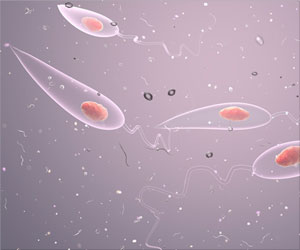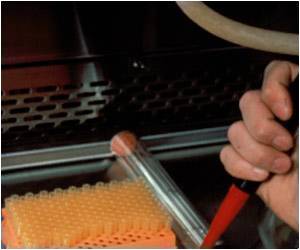SHP-1 inhibitors have been discovered as potential therapeutic targets for leishmaniasis vaccines.

‘SHP-1 not only inhibits cross-presentation of Leishmania antigens, but also of virus-infected and irradiated cells. ’





The parasite does this by secreting a molecule capable of interacting with the Mincle receptor expressed by antigen-presenting dendritic cells that help induce T-lymphocytes to trigger an immune response. "For dendritic cells to be able to present antigens to T-lymphocytes, they must also have been infected by the pathogen, or must acquire 'remains' from another infected cell. This latter process is called 'cross-antigen presentation' and requires specialised enzymatic machinery", explained Salvador Iborra, a researcher in the Department of Immunology, Ophthalmology and ENT at the UCM.
Besides helping to control physiological cell processes such as growth and proliferation, the newly discovered function of SHP-1 presented in Cell Reports is to limit the capacity of dendritic cells to cross-present antigens in order to prevent autoimmune disorders, i.e. to prevent lymphocytes from attacking healthy body tissue. The parasite masks its presence by activating this aspect of immune response control.
This study, conducted jointly with the Spanish National Centre for Cardiovascular Research (Spanish initials: CNIC) and the Champalimaud Centre for the Unknown in Lisbon, was conducted using genetically modified mice as an experimental model that lacks the Mincle receptor or the SHP-1 enzyme in dendritic cells.
"In addition, we have been able to test the usefulness of chemical compounds that block SHP-1 activation, such as NSC-87877. Among our results, we have shown that vaccination with dendritic cells treated with this inhibitor and loaded with parasite lysates induced a response in cytotoxic lymphocytes that protected the mice against infection", Iborra reported.
Advertisement
Although vaccines against canine leishmaniasis exist for dogs, which act as reservoirs of the disease, there are still no vaccines against the disease in humans, so "any advance in our knowledge of immunity to the parasite is useful for the development of an effective vaccine", Iborra concluded.










